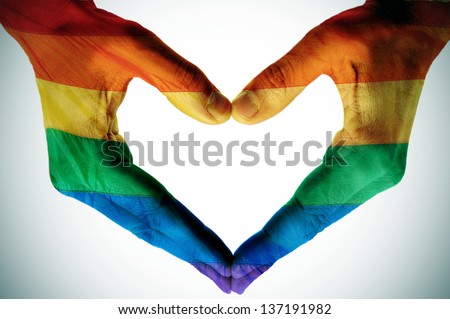联合国将于今年6月举行世界艾滋病大会,但由于51个穆斯林国家的抵制,11个同性恋和跨性别人士的组织将无法参加会议。
这51个国家包括埃及、沙特阿拉伯、伊朗、印尼、苏丹、乌干达等,它们都是伊斯兰合作组织(Organization of Islamic Cooperation)的成员。近日,由埃及代表这些国家写信给联合国大会主席吕克托夫特(Mogens Lykketoft),反对11个组织参加会议。但据路透社报导,信中并未给出反对的理由。
美国、加拿大、欧盟对事件表示不满,分别向吕克托夫特写信抗议。其中,美国驻联合国大使萨曼莎·鲍尔(Samantha Power)在信中表示,这些组织似乎是因为参与 LGBT 事务而被排除在外,考虑到跨性别人士携带艾滋病病毒的可能性比一般人高49倍,不让他们参加高层级会议只会令全球对抗艾滋病的进程受阻。
吕克托夫特于5月18日回应称,已在自己权力范围内保证了最广泛的参与,且因为制度所限,不能公开反对者的具体名单。
我不是太理解(这些决定),但我必须尊重它们。
被禁止与会的11个组织分别来自埃及、爱沙尼亚、圭亚那、牙买加、肯尼亚、秘鲁、泰国、乌克兰、非洲和美国等地,它们全都是关注男同性恋、女同性恋 或者跨性别人士权益的组织。其中位于喀麦隆的“Affirmative Action”是一个抑制艾滋病蔓延的组织,同时也为受到暴力或社会排斥的 LGBT 人群提供避难所。
据 ABC 新闻报导,吕克托夫特去年就艾滋病大会的安排进行协商时,就有一些成员国反对 NGO 参加,但拒绝给出公开的解释。此次会议有超过400个 NGO 希望参加,但有22个被拒绝,除被穆斯林国家抵制的11个 LGBT 组织外,还有11个与 LGBT 无关的组织。
这不是联合国首次就 LGBT 议题产生分歧。2014年,联合国秘书长潘基文宣布联合国会承认属下工作人员的同性婚姻,但遭到俄国、中国、印度、沙特阿拉伯、埃及、巴基斯坦叙利亚等 40多个国家反对;今年2月,非洲集团(African Group)、伊斯兰合作组织,以及白俄罗斯、卡塔尔等国,还曾抗议联合国新增的6枚推动 LGBT 平权的邮票。
LGBT 活动家 Bisi Alimi 表示,LGBT 人群仍然受到严重的歧视,52个非洲国家中,有35个仍把同性关系视为犯罪;如果不对 LGBT 人群去罪化,全球对抗艾滋病的战役也将失败。
声音
联合国大会每次聚会,NGO 的参与都会受到质疑和审核……这种以虚假、掩盖的理由阻止NGO参与联合国事务的情况已越来越普遍,联合国的公信力已严重受损。
如果你真的想消除艾滋病,把不同群体纳入讨论是很重要的。

Muslim states block 11 LGBT groups from attending UN Aids meeting
US ambassador says move by Organization of Islamic Cooperation represents an ‘epidemic and severely damages the credibility of the UN’
May 19, 2016
A group of 51 states, collectively known as the Organization of Islamic Cooperation, has denied 11 LGBT organizations access to a high-level meeting at the United Nations. The meeting, which was scheduled for next month, would be discussing the prospects of ending AIDS. The action of the Organization of Islamic Cooperation has sparked protests from United States, Canada, and the European Union, among other nations.
The Egyptian ambassador to the United Nations, Amr Abdellatif Aboulatta, wrote to the president of the General Assembly, Mogens Lykketoft, on behalf of the Organization of Islamic Cooperation. The participation of the 11 groups were objected in his letter,
but no explicit reasons were provided for it, according to Reuters.
Western officials however were quick to point out that nearly all of the groups that were denied access were involved in the LGBT rights movement. Officials from the U.S., the EU, Canada, and Australia expressed their displeasure to the U.N. officials. The U.S. ambassador to the United Nations, Samantha Power, protested the action in her own letter to the president of the General Assembly, stating that the disallowed groups had been chosen “based on their involvement in LGBTI advocacy.” She further justified her stand, in a comment.
“Given that transgender people are 49 times more likely to be living with HIV than the general population, their exclusion from the high-level meeting will only impede global progress in combating the HIV/AIDS pandemic.
“The movement to block the participation of NGOs on spurious or hidden grounds is becoming epidemic and severely damages the credibility of the U.N.”
Ambassador Joao Vale de Almeida voiced the European Union’s concern on the matter, demanding the names of the countries that had objected on the presence of these groups in the meeting and their reason for doing so. Britain’s deputy ambassador for the U.N., Peter Wilson, stated that it is vital that all communities are included for this meeting to be successful.
“It’s wrong to block access to the U.N. for transgender organizations and gay organizations that have every right to participate in this important discussion.”
The Canadian and Australian representatives also voiced their concerns on the matter both pointing out that it was not okay to just exclude certain communities without any justification when discussing a sensitive issue like HIV/AIDS.
When the arrangements for this AIDS conference were negotiated last year, some of the member states had negotiated the right to deny the participation of certain NGOs without any justification. More than 400 NGOs had applied to participate in this meeting, and the president’s office had received objections on 39 of those. That number was eventually narrowed down to 22, 11 of which are NGOs involved in the LGBTI movement.
This isn’t the first time an issue related to LGBTI rights has sparked a row among nations in the United Nations assembly. The Secretary-General of the U.N., Ban Ki-moon, has continually advocated for LGBT equality, and has faced opposition from Muslim states, as well as Russia and China. In 2014, he proclaimed that the U.N. would recognize same-sex marriages among its staff, allowing them to receive marriage benefits. A coalition led by Russia and backed by 43 countries including China, India, Saudi Arabia, Pakistan, and Iran tried to oppose the move but ultimately failed to overturn it.
Similarly, the U.N. faced a lot of opposition last year when it released six new U.N. stamps promoting LGBT equality. The 54-member African Group, the Organization of Islamic Cooperation and the 25-member Group of Friends of the Family led by Belarus, Egypt, and Qatar protested the release of these stamps.